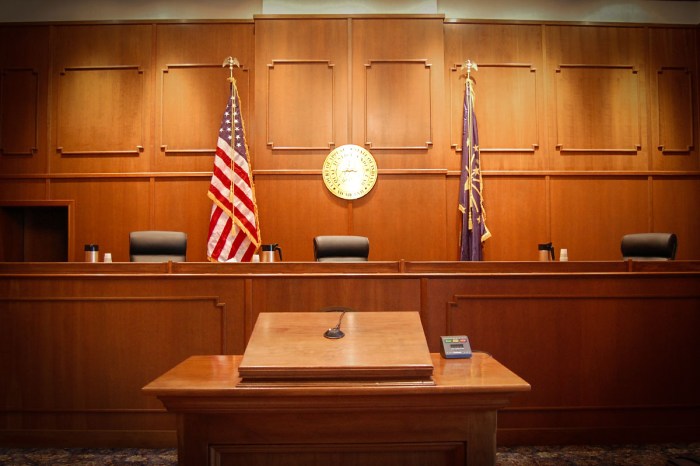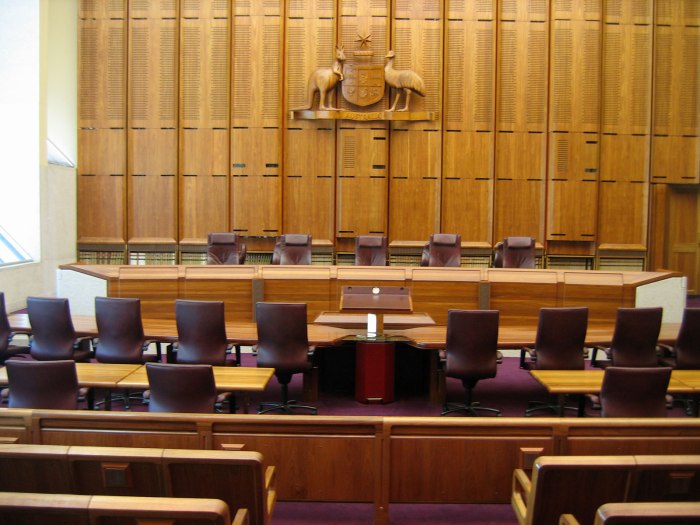Judicial branch in a flash crossword – In this comprehensive guide to the judicial branch, we delve into its intricacies, exploring its essential functions, significance, and the challenges it faces in the modern era. Prepare to embark on a journey that illuminates the judicial branch’s role in safeguarding our rights and shaping societies.
The Judicial Branch in a Government System
The judicial branch is one of the three branches of government in many democratic systems. It is responsible for interpreting and applying the law, and for resolving disputes. The judicial branch is typically composed of courts, which are presided over by judges.
The primary functions of the judicial branch are to:
- Interpret the law and apply it to specific cases
- Resolve disputes between individuals, businesses, and the government
- Protect the rights and freedoms of citizens
The judicial branch is an essential part of any democratic government. It ensures that the law is applied fairly and impartially, and that the rights of citizens are protected.
Types of Courts
There are many different types of courts within the judicial branch. Some of the most common types of courts include:
- Trial courts: These courts are responsible for hearing and deciding cases.
- Appellate courts: These courts review decisions made by trial courts.
- Supreme courts: These courts are the highest courts in a country and have the final say on legal matters.
The Role of Judges
Judges are the individuals who preside over courts. They are responsible for interpreting the law and applying it to specific cases. Judges must be impartial and fair, and they must follow the law without bias.
Judges are appointed or elected to their positions, depending on the country. In some countries, judges are appointed by the executive branch of government. In other countries, judges are elected by the people.
The Importance of the Judicial Branch in a Democratic Society

The judicial branch is an essential part of any democratic society. It ensures that the law is applied fairly and impartially, and that the rights of citizens are protected.
The judicial branch plays a number of important roles in a democratic society, including:
- Protecting the rights and freedoms of citizens
- Resolving disputes between individuals, businesses, and the government
- Interpreting the law and applying it to specific cases
- Ensuring that the government follows the law
The judicial branch is a vital part of any democratic society. It helps to ensure that the government is accountable to the people, and that the rights of citizens are protected.
Landmark Cases
The judicial branch has played a vital role in shaping the development of democracy. Some of the most important landmark cases in history have been decided by judges.
Here are a few examples of landmark cases that have shaped the role of the judicial branch:
- Marbury v. Madison(1803): This case established the principle of judicial review, which gives the courts the power to declare laws unconstitutional.
- Brown v. Board of Education(1954): This case ruled that racial segregation in public schools was unconstitutional.
- Roe v. Wade(1973): This case legalized abortion in the United States.
Judicial Independence
Judicial independence is a fundamental principle of democracy. It means that judges must be free from political interference when making decisions.
There are a number of ways to ensure judicial independence. One way is to appoint judges for life terms. Another way is to give judges high salaries so that they are not tempted to take bribes.
Judicial independence is essential for the proper functioning of a democracy. It ensures that judges can make decisions without fear of reprisal.
Comparing the Judicial Branch in Different Countries

The judicial branch is organized differently in different countries. In some countries, the judicial branch is a separate and independent branch of government. In other countries, the judicial branch is part of the executive branch of government.
There are a number of factors that influence the structure and organization of the judicial branch in different countries. These factors include:
- The country’s history and culture
- The country’s political system
- The country’s economic development
Similarities and Differences
Despite the differences in the structure and organization of the judicial branch in different countries, there are some similarities. For example, in most countries, judges are appointed or elected to their positions.
However, there are also some important differences. For example, in some countries, judges are appointed for life terms, while in other countries, judges are elected for fixed terms.
Effectiveness of Judicial Systems
The effectiveness of a judicial system depends on a number of factors, including:
- The independence of the judiciary
- The quality of the judges
- The resources available to the judiciary
A strong and independent judiciary is essential for the proper functioning of a democracy. It ensures that the law is applied fairly and impartially, and that the rights of citizens are protected.
Challenges Facing the Judicial Branch in the Modern Era: Judicial Branch In A Flash Crossword

The judicial branch faces a number of challenges in the modern era. These challenges include:
- The impact of technology
- Ethical dilemmas
- Emerging societal issues
Impact of Technology, Judicial branch in a flash crossword
Technology is having a major impact on the judicial process. For example, courts are now using electronic filing systems and video conferencing. This is making the judicial process more efficient and accessible.
However, technology also poses some challenges for the judicial branch. For example, the use of social media can make it difficult for judges to remain impartial.
Ethical Dilemmas
Judges face a number of ethical dilemmas in the modern era. For example, judges must decide whether to allow cameras in the courtroom and whether to use artificial intelligence to make decisions.
Judges must also decide how to handle cases involving new technologies, such as social media and cryptocurrencies.
Emerging Societal Issues
The judicial branch is also facing a number of emerging societal issues. These issues include:
- The rise of populism
- The increasing polarization of society
- The spread of misinformation
These issues are making it more difficult for judges to make decisions that are fair and impartial.
FAQ Overview
What are the primary functions of the judicial branch?
The judicial branch interprets laws, resolves disputes, and ensures the fair and impartial administration of justice.
How does the judicial branch protect citizens’ rights?
Through landmark cases and the principle of judicial review, the judicial branch safeguards fundamental rights and freedoms, holding government accountable for its actions.
What are some of the challenges facing the judicial branch today?
The judicial branch navigates the impact of technology, ethical dilemmas, and emerging societal issues, adapting its practices to ensure continued effectiveness.